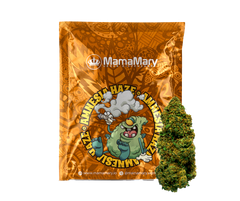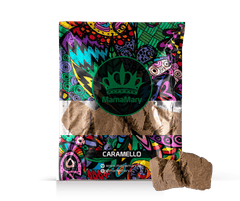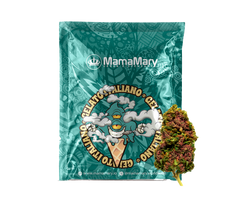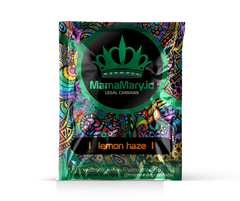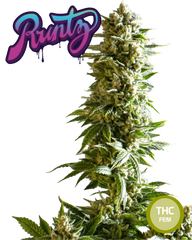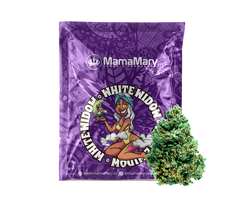After the work done in the last legislature, by the parliamentary intergroup , Matteo Mantero, senator of the M5s, has filed a bill in the Senate to legalize the cultivation, processing and sale of cannabis and its derivatives.
"Today we are faced with a situation in which criminal organizations control the production, processing and sale of every type of prohibited substance, the processors and intermediaries," Mantero declared. Even the National Anti-Mafia Directorate in both 2016 and 2017, in its annual report, declared itself " in favor of legalization, acknowledging on the basis of numbers, facts, investigations and trials in our possession the failure of prohibitionist policies ."

"Even in Italy, the legalization of cannabis - the Five Star senator continues - would allow for savings in the costs associated with the criminal repression of the phenomenon and would reabsorb a good part of the criminal profits of the black market, which, let's remember, in the world the overall drug trafficking business is estimated to be worth 560 billion euros a year, while in Italy it is estimated at around 30 billion euros, equal to around 2% of the national GDP , more than half of the market (around 15 billion) is made up of marijuana and its derivatives. These numbers, according to the DNA, "confirm that the fight against drug trafficking remains crucial". Therefore, for Matteo Mantero, those who are against legalization are, in a certain way, defending the interests of organized crime, given that the existing black market is undeniable. "Many agree that it is senseless to prosecute those who smoke a joint, given that marijuana is not as harmful as alcohol and tobacco. Indeed, according to research published in the journal Scientific Reports, an affiliate of Nature, alcohol has a dangerousness index 114 times higher than cannabis , followed by heroin, cocaine and tobacco”, explains the senator. Mantero highlights how “ over 70 percent of Italians would agree ” with legalization. The senator also underlines that “with the cancellation of the crime of production and sale of soft drugs, which represents more than half of the drug market, almost 800 million euros would be saved, following the lower expenses between the judiciary, prisons and those related to public order and security. Economic and financial resources that could be moved to the fight against hard drugs, such as cocaine, heroin and synthetic drugs, these really are dangerous”.
Casting an eye overseas for example to Canada which has completely legalized ( paying the entire state debt in a few days), to the United States , which after the first experiments, has seen more and more states proceed towards the production and sale of marijuana for recreational use, such as Colorado, Washington, Oregon and Alaska and the District of Columbia and even Europe is no exception, in addition to the renowned experience of Amsterdam, recently also Spain, has seen the progressive registration of the so-called "Cannabis Clubs", to arrive as far as the East, with South Korea which has opened up to medical use.

"Allowing the self-production of cannabis as well as regulating the production and sale of inflorescences of the so-called "light" and allowing its use for recreational purposes - continues Mantero - would constitute an important protection of public health, as it would shift the consumption of cannabis from the illegal market of products potentially harmful to health, to products instead grown with respect for the health of the user ".

"On the other hand, - he concludes - the very experience of the states that have legally regulated the marijuana market shows that the number of consumers has not grown at all, nor has the social and health impact directly or indirectly connected to consumption increased. Only legal income and tax revenue from the legalized market have grown".
But in essence, what does the bill provide?
- allow, under certain conditions, the cultivation of cannabis , individually ( up to 3 plants ) or in association (up to 30 people and after communication to the Prefecture). To start cultivation, whether individually or in association, it will be sufficient to communicate it to the competent prefecture, without receiving prior authorization;
- provide for the legality of the possession of cannabis within certain quantities ( 15 grams at home and 5 grams outside ), as well as correcting the law on inflorescences, which are now sold in the so-called "cannabis light shops" for technical use, providing for the possibility of being sold for food or herbal use (they will be subject to all those controls due and linked to that type of activity) and raising the percentage of THC that they can contain up to 1%.
- The free transfer of a modest quantity of cannabis (less than a gram) if grown personally or in association has also been decriminalized. Violation of the law, the provision specifies, will be considered an 'administrative offence' and will be sanctioned with a fine ranging from 100 to 1000 euros. However, the proceeds from fines, as stated in article 6, will be reinvested in training, educational, preventive, curative and rehabilitative interventions, implemented by schools and health institutions to stem the phenomenon of drug addiction ;
- regulate illicit conduct by providing for a differentiation of punishment in relation to the type of substances (hard drugs, soft drugs).
Will we finally start to legislate this issue seriously in Italy too? We'll see, in the meantime we'll keep our fingers crossed! ;)


